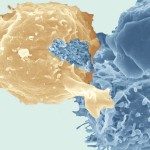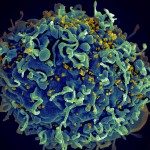Présentation
The public health relevance of retroviruses of zoonotic origin is illustrated by the human immunodeficiency virus (HIV) epidemic, the worldwide distribution of human T-lymphotropic viruses (HTLVs), and the morbidity and mortality associated with both sets of viruses. Both HIVs and HTLVs emerged in the human population after several cross-species transmission events involving retroviruses (SIVs and STLVs) endemic in non-human primates (NHPs). Moreover, a third genus of complex retroviruses, the foamy viruses, some of which are of simian origin, can also establish persistent infections in humans. Simian foamy viruses (SFVs) are widespread and highly prevalent in many NHP species. These viruses can be readily isolated from the saliva and oropharyngeal secretions of infected NHPs. Penetrating bite wounds therefore constitute a potential route of transmission to humans, leading to the establishment of life-long persistent infection. Human infection with zoonotic SFVs constitutes a unique, natural model for studies of the restriction of retrovirus emergence in humans.
We propose a multidisciplinary project focusing on the cross-species transmission of retroviruses from NHPs to humans. Our research program focuses on the ex vivo study of human samples and the primary viral strains isolated from these samples.










